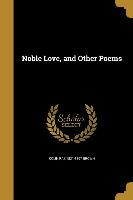A Theological Introduction to Paul's Letters
BücherAngebote / Angebote:
In this study Kim explores a new way of reading Paul's letters and understanding his theology with a focus on three aspects of Paul's gospel: "the righteousness of God, " "faith of Christ, " and "the body of Christ." Kim argues that Paul's thought can be best understood by reading these genitives as the subjective or attributive genitives, rather than as the objective genitives. The subjective or attributive reading places an emphasis on the subject's participation: God's participatory righteousness, Christ's faithful obedience to God, and the believer's living of Christ's body. Using this approach, Kim investigates the root of Paul's theology in a wide array of texts and contexts: in the Hebrew Bible, Second Temple Judaism, the Greco-Roman world, and Paul's canonical letters. In doing so, Kim synthesizes Paul's theology and ethics seamlessly, balancing the roles of God, Christ, and believers in Paul's gospel.
For the website:
Study/Discussion Questions and Sample Syllabus available at http://youaregood.com/threefoldtheology.htm
"Yung Suk Kim possesses one of the most original, refreshing, and urgent voices among the rising generation of New Testament theologians. Kim has a rare ability to synthesize various critical approaches in constructing Paul's theology: historical criticism, sociological analysis, and post-colonial interpretation interact productively. Kim's Theological Introduction to Paul's Letters invites readers to rethink crucial aspects of Paul's theology--'righteousness, ' 'faith, ' 'embodiment'--as avenues of subjective participation in the politics of love."
-Laurence L. Welborn
Professor of New Testament and Early Christianity
Fordham University
Yung Suk Kim is Assistant Professor of New Testament and Early Christianity at Samuel DeWitt Proctor School of Theology, Virginia Union University, Richmond. He is the author of Christ's Body in Corinth: The Politics of a Metaphor (2008), and editor of the Journal of Bible and Human Transformation.
Folgt in ca. 15 Arbeitstagen




